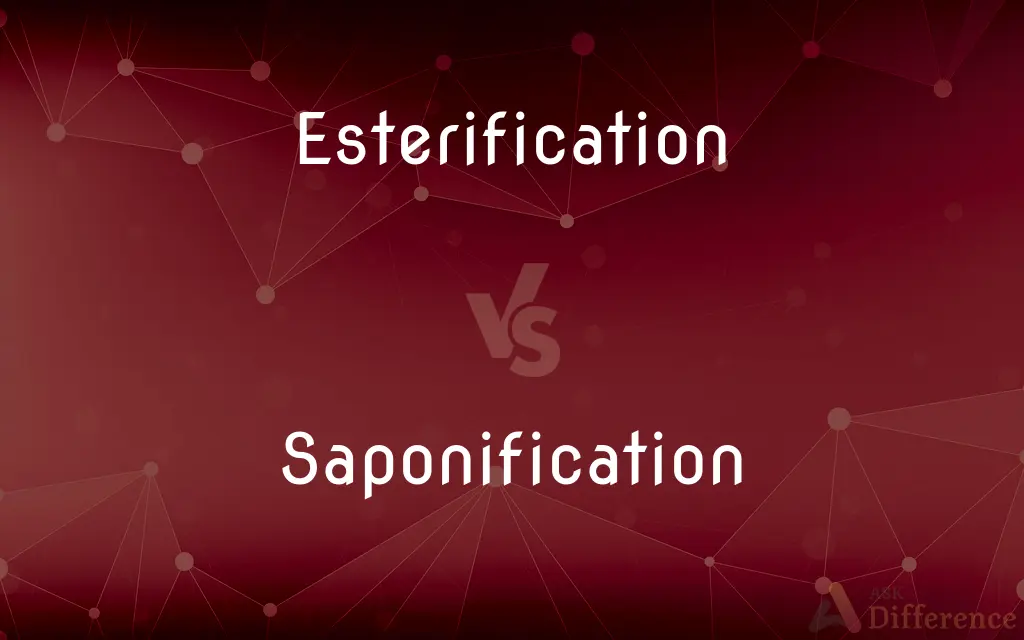Esterification vs. Saponification — What's the Difference?

Difference Between Esterification and Saponification
ADVERTISEMENT
Compare with Definitions
Esterification
A chemical reaction resulting in the formation of at least one ester product.
Saponification
Saponification is a process that involves the conversion of fat, oil, or lipid, into soap and alcohol by the action of aqueous alkali (e.g. NaOH).) Soaps are salts of fatty acids, which in turn are carboxylic acids with long carbon chains.
Esterification
(organic chemistry) Any reaction (typically between an acid and an alcohol) that results in the production of an ester
[http://www.sigmaaldrich.com/etc/medialib/docs/Aldrich/Acta/al_acta_30_01.pdf Aldrichimica Acta Volume 30 No 4] (pdf) from [http://www.sigmaaldrich.com/chemistry/chemical-synthesis/learning-center/aldrichimica-acta.html Sigma-Aldrich]
Saponification
A reaction in which an ester is heated with an alkali, such as sodium hydroxide, producing a free alcohol and a carboxylate salt, especially alkaline hydrolysis of a fat or oil to make soap.
Saponification
(chemistry) The hydrolysis of an ester under basic conditions to form an alcohol and the salt of the acid.
ADVERTISEMENT
Saponification
The reaction of a metallic alkali (base) with a fat or oil to form soap.
Saponification
The act, process, or result, of soap making; conversion into soap; specifically (Chem.), the decomposition of fats and other ethereal salts by alkalies; as, the saponification of ethyl acetate.
Saponification
A chemical reaction in which an ester is heated with an alkali (especially the alkaline hydrolysis of a fat or oil to make soap)
Share Your Discovery

Previous Comparison
Nylon vs. Rayon
Next Comparison
Catholicism vs. Episcopalianism













































